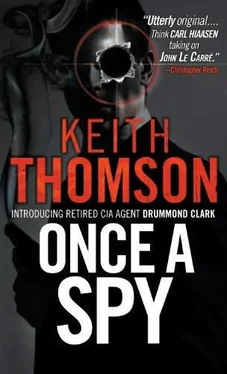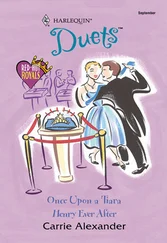Keith Thomson - Once a spy
Здесь есть возможность читать онлайн «Keith Thomson - Once a spy» весь текст электронной книги совершенно бесплатно (целиком полную версию без сокращений). В некоторых случаях можно слушать аудио, скачать через торрент в формате fb2 и присутствует краткое содержание. Жанр: Шпионский детектив, на английском языке. Описание произведения, (предисловие) а так же отзывы посетителей доступны на портале библиотеки ЛибКат.
- Название:Once a spy
- Автор:
- Жанр:
- Год:неизвестен
- ISBN:нет данных
- Рейтинг книги:5 / 5. Голосов: 1
-
Избранное:Добавить в избранное
- Отзывы:
-
Ваша оценка:
- 100
- 1
- 2
- 3
- 4
- 5
Once a spy: краткое содержание, описание и аннотация
Предлагаем к чтению аннотацию, описание, краткое содержание или предисловие (зависит от того, что написал сам автор книги «Once a spy»). Если вы не нашли необходимую информацию о книге — напишите в комментариях, мы постараемся отыскать её.
Once a spy — читать онлайн бесплатно полную книгу (весь текст) целиком
Ниже представлен текст книги, разбитый по страницам. Система сохранения места последней прочитанной страницы, позволяет с удобством читать онлайн бесплатно книгу «Once a spy», без необходимости каждый раз заново искать на чём Вы остановились. Поставьте закладку, и сможете в любой момент перейти на страницу, на которой закончили чтение.
Интервал:
Закладка:
Determined to find out, on Christmas Eve, 1990, at 11:45 P.M., he accessed Furnald Hall’s basement by prying open the shaft of an outmoded service elevator and rappelling down. He sprung the old employee washroom door’s intricate lock with a quiet surgical drill. Leaving the door ajar, he crept into the tunnel.
The tunnel ended after about a hundred feet at a grimy cinder block wall. He suspected the rusty ventilation grate there, wadded with a half-century’s worth of dust, was really a door-the dead end of a tunnel was an odd place for a ventilation grate. If so, the door probably opened with a retinal scanner concealed somewhere. Even if he knew where, the odds were one in 100,000 at best that his eyeball would open it. If he had brought a torch and five or six tubes of acetylene, or a grenade launcher, the odds would have been a bit better. These were still odds, he thought, that the people inside the complex could live with.
He concealed himself in the core of one of the giant cable spools. He planned to stay the entire weekend, during which time he would not eat. He would drink a minimal amount of a citrus beverage he’d made after reading about it in one of his books on desert survival. The beverage was stored in the small rubber bladder he’d sewn onto his backpack. He’d taken preventive measures so that his bodily waste would be limited to urine, discharged into a tube and stored in the rubber bottle secured to his thigh by spandex bicycling shorts. Just being balled up in the cable spool for so many hours might have been torture, but he’d spent three weekends rehearsing in his small clothes closet. Also he viewed self-deprivation as something of a sport.
His plan hinged on his theory that the tunnel’s entry door was outfitted with at least one motion sensor. His backpack contained forty-eight small lab rats. At precisely 12:00 A.M., four minutes after his arrival, he sent the first of his rats scurrying out of the cable spool, through the open tunnel door, and into the Furnald basement, where he’d placed a hunk of cheddar cheese. At exactly every hour on the hour thereafter, he sent another rat on the same course. The first rat was meant to simulate the motion of his own departure. The subsequent rats were intended to make whoever was in the Manhattan Project complex conclude that the motion sensor had gone haywire, then come out to do something about it.
At 9:07 the next morning, the ventilation grate swung outward and two men in business suits emerged. The medical student revealed himself to them and owned up to what he’d done. They invited him into the complex. Although not one for emotional displays, he found himself pumping a fist.
While gloomy, the labyrinthine facility dazzled him. Racing the Nazis to develop “the gadget,” the Manhattan Project scientists never got around to decorating or even painting the concrete walls. The medical student would learn that when the current occupants moved in, they had no more time or inclination. But in the early ’80s, on one of the chaotic August days that Columbia students all arrived on campus, the custodial alley behind Furnald Hall received a truckload of items confiscated by the DEA from a local drug kingpin-tables and chairs and fixtures befitting the Palais de Versailles in jarring combination with furnishings better suited to Las Vegas. Typical of the resulting scheme was the conference room, with an elegant antique Persian carpet and a contemporary black lacquer table inlaid with a shiny soaring hawk rendered in silver, gold, and bronze.
At the head of the table on the morning of December 25, 1990, sat Drummond Clark, then in his mid-forties. When brought into his stern glare, the medical student considered for the first time that he might be killed.
“We’re undecided what to do with you as yet,” Drummond said. “Some of my colleagues have suggested that, as a penalty, you have to work here.”
And so, after the usual vetting, Nick Fielding joined the Cavalry.
Now, nearly two decades later, Fielding entered the same boardroom and stood at the head of the same hideous conference table. Snowflakes from the 165th Street helipad still glinted on his suit coat. Drummond sat slumped at the foot of the table, in a chair whose scrolled ironwork formed a pattern of diamonds within diamonds. One of its front legs had been bent so that its occupant couldn’t get comfortable. This was a trick as old as interrogation. And it wasn’t working: Drummond was fast asleep. If not for the handcuff clamping his right wrist to the arm of the chair, he would have slid to the floor.
“Duck?” Fielding said.
Seeming to snap to, Drummond said, “Sorry, it’s been a long night.”
“How are you feeling?”
“Fine, fine. Yourself?”
“Not so fine. But I’ll be better when I find out if you’ve spilled Placebo.”
Drummond looked him over. “Oh, I thought you were the fellow who was here before.”
Probably he meant O’Shea, the guard who stood outside the conference room. O’Shea had fair hair like Fielding. He also had fifty more pounds and twenty less years. Fielding was troubled by his mentor’s failure to recognize him, but only insofar as he couldn’t tell whether it was attributable to illness or artifice.
8
Ventilators the size of jet engines heaved fresh air into the complex. Still, the tunnel from the Perriman subbasement was clammy, the way Charlie imagined a submarine would be. It ended at an ordinary door, through which Dewart ushered him into a stark, concrete hallway lit with fluorescents that caused the walls to shimmer in a dull blue.
In the sporadic dark offices and meeting rooms on both sides, activity was minimal. Charlie saw only a desk chair roll partly into view and a shadow fluctuate just so. His hope that Drummond was still alive rested in large part on the length of time it took to fly an interrogator from the Caribbean to New York. Twice when he tried to ask questions, Dewart shushed him.
Dewart stepped into the employee lounge, an alcove whose amenities included a spotty coffee urn and a refrigerator on which somebody had taped the note THROW OUT OLD MILK. Still clacking a dry tongue, he opened the refrigerator and plucked out a bottle of Gatorade.
“Have a throne,” he said to Charlie, indicating a bridge table surrounded, incongruously, by a quartet of high-backed, gilded chairs that could have come from Liberace’s dining room. “Coke or something?”
“I’m good,” Charlie said. He sank into a velvet-covered cushion.
This was hardly the interrogation upon which his plan hinged.
Dewart plunked his Gatorade onto the table and sat as well. “So there’s a small matter I wanted to run by you, Chuck. We have a recording of a cryptic phone call this evening between you and twice-convicted felon Leonid Grudzev, a.k.a. Leo Kuchna and Leo the Terrible. Do you have any interest in explaining this?”
“Well…” Charlie said. It was about time.
“ Well, what?”
“You’re not going to be too happy about this.”
“I promise you, I’ll be a lot less happy if you don’t tell me.”
“Okay, have it your way. Once Mr. Hattemer was killed, I figured anyone else in this country with the power to help me probably would be having a bad fall down a flight of stairs or something like that. I called Grudzev because he knows people in low places, and I hoped one of those places might be the new KGB.”
“The SVR?”
“That’s the one. As everyone’s favorite philosopher, Sun Tzu, put it, ‘My enemy’s enemy is my friend.’ I figured if the Ivans knew about Placebo, it wouldn’t be much of a secret anymore. I know this isn’t the ideal solution, but it’s more ideal than getting killed because I know the secret myself.”
“ ‘My enemy’s enemy’ is an Arab proverb,” Dewart spat. He jerked Charlie up from his chair, slung him against the refrigerator, and handcuffed him to the adjoining refrigerator and freezer door handles, slapping on the cuffs with more force than necessary. Then he was off; Charlie heard his hurried footfalls long after he’d disappeared down the corridor.
Читать дальшеИнтервал:
Закладка:
Похожие книги на «Once a spy»
Представляем Вашему вниманию похожие книги на «Once a spy» списком для выбора. Мы отобрали схожую по названию и смыслу литературу в надежде предоставить читателям больше вариантов отыскать новые, интересные, ещё непрочитанные произведения.
Обсуждение, отзывы о книге «Once a spy» и просто собственные мнения читателей. Оставьте ваши комментарии, напишите, что Вы думаете о произведении, его смысле или главных героях. Укажите что конкретно понравилось, а что нет, и почему Вы так считаете.












